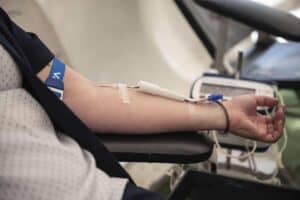Gauteng health says the patients are being located with the aid of social services and Johannesburg Central police are helping to find the others.

The Gauteng provincial health department is on the verge of tracing four of the 21 missing Life Esidimeni patients after it found their names among grant beneficiaries on the South African Security Agency’s (Sassa) database, the department announced yesterday.
Acting director of mental health Dr Kobie Marais said they had managed to find the names of the four from Sassa and were currently working to secure the agency’s cooperation to provide the department with their personal details, including addresses, so that the department officials could visit them at home.
“We are using Sassa’s database to locate them. We have also engaged Johannesburg Central police station to support us in finding the rest of the mental health patients,” Marais said.
She said at the beginning of 2017 there were more than 100 missing patients, while the number dropped to 45 in February, and then to the current 21. The patients were excluded from the 144 that died after they were handed over to unqualified non-governmental organisations by the department under former MEC Qedani Mahlangu .
“We have to visit and physically see these patients before we take them off the list of the missing persons,” Marais said.
Marais spoke at a media briefing addressed by Gauteng health MEC Dr Gwen Ramokgopa and current department HOD Professor Mkhululi Lukhele at Rahima Moosa Mother & Child Hospital in Westbury, Johannesburg.
The MEC and top management explained various achievements made by her department to improve primary health care in the province’s facilities.
Ramokgopa said there was a plan to empower hospital boards to be able to do oversight function over management.
Presently the boards merely advise hospital management but with their new powers they would be able to do inspections and other tasks at the facilities. She said a mental health recovery plan was adopted and an implementation plan would be undertaken.
The MEC expressed appreciation of the dedication of front line staff at various public health centres for taking additional workload of patients from other provinces, foreign countries and the private sector.
She said the professionalism in health care provision had made the province’s facilities the first choice for primary training of health professionals.
The province had achieved the highest number of facilities that were accredited as ideal hospitals and ideal clinics, a project undertaken by the Gauteng health accreditation committee.
For more news your way, download The Citizen’s app for iOS and Android.






